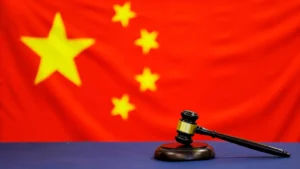In business and law, the importance of protecting sensitive information cannot be overstated. Companies routinely use legal agreements to safeguard their intellectual property, trade secrets, and other confidential data from misuse or unauthorized disclosure. Among the most commonly used legal tools are Non-Disclosure Agreements (NDAs) and Non-Disclosure, Non-Use, and Non-Circumvention Agreements (NNN Agreements). While both serve the critical function of protecting confidential information, they differ significantly in their scope and application.
Table of Contents
ToggleWhat is an NDA?
A Non-Disclosure Agreement, or NDA, is a legal contract between at least two parties that outlines confidential material, knowledge, or information that the parties wish to share with one another for certain purposes but wish to restrict access to or by third parties. The primary purpose of an NDA is to prevent the disclosure of confidential information. It is a standard tool in many business transactions where sensitive information is exchanged, such as mergers and acquisitions, partnerships, and vendor agreements.
An NDA typically specifies:
- What constitutes confidential information.
- Who is involved in the agreement.
- The scope of the confidentiality obligation.
- The duration of the agreement.
The agreement binds the recipient of the information, preventing them from sharing or using the information beyond the agreement’s purpose.
What is an NNN Agreement?
NNN Agreements are more comprehensive than traditional NDAs and are particularly prevalent in Chinese business practices. They include three core components: non-disclosure, non-use, and non-circumvention. Here’s what each component entails:
- Non-disclosure: Similar to NDAs, this clause prevents the sharing of sensitive information with unauthorized parties.
- Non-use: This clause ensures that the recipient of the information does not use the shared secrets without the originator’s express consent. This is particularly important in manufacturing and production, where design specifics and technical know-how are guarded.
- Non-circumvention: It prevents the recipient from bypassing the originator and dealing directly with subcontractors or other contacts. This is crucial in preventing parties from exploiting the original company’s business connections.
- Non-competition: This clause, often included in NNN Agreements, restricts the recipient from becoming a competitor in certain markets or fields.
Tailored for the Chinese Market
NNN Agreements are tailored specifically to the nuances of the Chinese legal and business landscape. They are designed to offer a robust form of protection in China’s highly competitive and rapidly evolving market. These agreements are usually drafted in Chinese to ensure that they are enforceable in local courts, which prefer documentation in the local language to avoid misinterpretation by translators. Moreover, they specify that any legal proceedings should be conducted within the Chinese jurisdiction, enhancing enforceability.
Enhanced Protection with NNN Agreements in China’s Business Environment
As businesses increasingly engage with the Chinese market, the traditional NDA often falls short of offering adequate protection in such a highly competitive and fast-paced environment. In contrast, the NNN Agreement has emerged as a more appropriate and effective tool for protecting sensitive business information. This type of agreement offers a tri-fold protection mechanism—covering confidentiality, unauthorized use, and circumvention—which provides a more comprehensive defense suitable for the unique business context of China.
NNN Agreements extend far beyond the basic confidentiality constraints of NDAs. They incorporate non-use clauses that prevent the recipient from using the shared information for any unapproved purposes, crucial in sectors where proprietary knowledge is a key competitive asset. The non-circumvention clauses ensure all business dealings are funneled through the primary company, safeguarding against partners or associates who might otherwise bypass the originator to deal directly with suppliers or clients.
These agreements are specifically tailored to align with the Chinese legal system, often drafted in Chinese and stipulating local jurisdiction for any disputes. This careful localization significantly enhances their enforceability, giving businesses operating in China a greater level of security and peace of mind. Such precision and adaptability to local legal nuances ensure that NNN Agreements are a robust legal shield, especially in China’s dynamic market.
As the global market continues to evolve, understanding and adapting to the legal nuances of different regions becomes crucial for successful international operations. For companies venturing into China, transitioning from the NDA to the NNN Agreement—adapted to Chinese laws, having jurisdiction in China, and written in a verified Chinese version—is not just a necessary adjustment but a strategic and protective step forward. This approach ensures that international firms can operate with confidence, knowing their intellectual property and business interactions are thoroughly safeguarded by a legal framework designed for the Chinese landscape.
The Critical Role of Verified and Tailor-Made Contracts in China
In China’s complex and rapidly evolving business environment, standardized contracts often fail to provide adequate legal protection. This underscores the critical need for verified and tailor-made contracts, especially for international companies engaging with the Chinese market. Customized agreements are beneficial and essential in addressing the unique business practices, regulatory requirements, and legal risks specific to China.
Tailor-made contracts, such as customized NNN Agreements, are designed to cover all aspects of business interactions uniquely relevant to the parties involved. These contracts go beyond generic legal formulations to include detailed provisions that tackle specific scenarios likely to occur in the Chinese business context. By focusing on the particularities of each business relationship and the intricacies of Chinese law, these agreements offer a more robust defense against potential legal challenges and breaches.
Furthermore, ensuring these contracts are verified and drafted in Chinese is crucial for their enforceability. Verification here means that the contracts are not only compliant with local laws but are also structured to be clear and unambiguous to all parties involved, including local authorities and courts. This meticulous approach minimizes misunderstandings and disputes over contract interpretations, which can be critical during legal proceedings.
The emphasis on creating tailor-made and verified contracts reflects a strategic approach to international business practices. It acknowledges the diversity of global markets and the necessity of adapting legal tools to fit different legal environments. For companies entering or expanding within China, investing in such customized and legally sound contracts isn’t just prudent; it’s a vital step toward securing their business interests and ensuring compliance with local regulations.
As the global market continues to evolve, the importance of adapting to the legal nuances of each region cannot be overstated. For businesses aiming to succeed in China, deploying tailor-made and verified contracts is a fundamental strategy that provides greater security, compliance, and peace of mind.
Conclusion
While both NDAs and NNN Agreements play critical roles in protecting confidential information, the choice between them depends on the specific needs of the business situation and the jurisdiction involved. NDAs are suitable for general confidentiality requirements, whereas NNN Agreements provide a more layered approach to secrecy. This makes them ideal for operations in regions like China where business practices and legal systems demand detailed and stringent agreements. Understanding the distinctions between these agreements is crucial for businesses to protect their operational secrets effectively while engaging in global markets.
FAQ: Understanding NDA and NNN Agreements
What is an NDA?
An NDA, or Non-Disclosure Agreement, is a legal contract that restricts the sharing of confidential information between parties and prevents its disclosure to third parties. It is commonly used in business transactions to protect sensitive information.
What is an NNN Agreement?
An NNN Agreement includes three main components: non-disclosure, non-use, and non-circumvention. Some agreements also include non-competition clauses. It is more comprehensive than an NDA and is specifically designed to offer robust protection in business environments like China.
How do NDAs and NNN Agreements differ?
While both agreements aim to protect confidential information, NDAs primarily focus on preventing the disclosure of this information. NNN Agreements go further by preventing the misuse of the information, protecting against bypassing the provider to reach customers directly, and restricting competition against the provider.
Why are NNN Agreements particularly used in China?
NNN Agreements are tailored for the Chinese business and legal environment, offering comprehensive protection suitable for its highly competitive and fast-paced market. They are enforceable under local laws and are typically drafted in Chinese to ensure clarity and enforceability in local courts.
Do NNN Agreements need to be in Chinese?
Yes, to be enforceable in China, it is recommended that NNN Agreements are drafted in Chinese. This helps avoid issues with translation and interpretation in court, ensuring the agreement is understood in its intended context.
Can an NNN Agreement prevent a party from becoming a competitor?
Yes, many NNN Agreements include a non-competition clause that restricts the recipient of the information from becoming a competitor in certain markets or fields, providing a strategic advantage to the originator of the information.
In what situations should a company consider using an NNN Agreement over an NDA?
Companies should consider using an NNN Agreement when engaging in transactions in competitive and complex business environments like China, where additional layers of protection are necessary to safeguard against misuse of information, circumvention, and competition.








